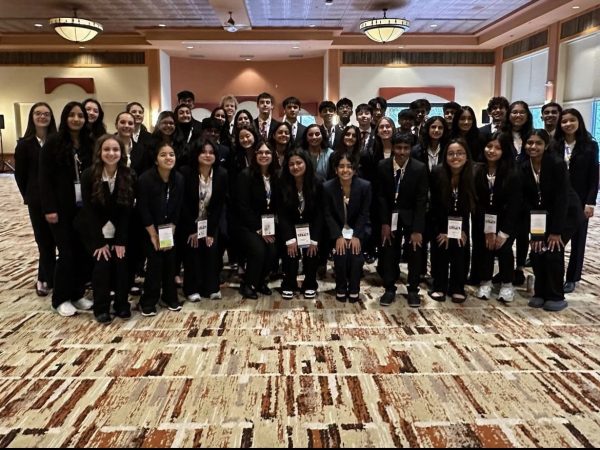Science Olympiad: a nerdy yet enthralling competition
On January 26, in sub-zero temperatures, the Science Olympiad team of Central piled into one school bus that was destined for UW-Milwaukee. They carried Rube-Goldberg-esque contraptions, handmade instruments, and binders stuffed with papers, piled into one school bus that was destined for UW-Milwaukee. Science Olympiad is an annual event in which schools across the south-eastern region of Wisconsin meet to battle it out in events with names that don’t seem to be particularly related to science. Yes, Science Olympiad is definitely on the nerdy side of things, but to the members of the team, it’s an experience that you wouldn’t be able to find in any ordinary science class.
Jahnavi Hansaria (‘22), commented that Science Olympiad “was different from what I expected since there’s a lot more work you have to do independently and rules you have to make sure you follow for your category.” Truth to be told, there are virtually no instructions given to the competitors outside of the rulebook. Sometimes the smallest thing can be cause for a disqualification, yet part of the fun is relying totally on yourself and feeling out what your limits are. Zara Ammar (‘20), who competed in Sounds of Music (an event that is loosely based on sound physics and asks competitors to build instruments from scratch that are able to play in tune), rated the event as her personal favorite “because it taught me a lot about all the hard work and thought that goes into designing an instrument from scratch, giving me a deeper appreciation for musical instruments in general.” Ammar and her event partner, Lucy Balles (‘20), actually ended up placing in Sounds of Music.
Unlike many other competition-based clubs, the Central Science Olympiad team doesn’t pressure its members to place. Manasvi Paturu (‘21) said that “You actually don’t really have to be super amazing at science and I think it’s a fun thing to do with friends or alone. There’s no pressure that you have to be the best at the event that you are in.” The best part of Science Olympiad, according to Paturu, wasn’t the actual competition: “My favorite part was playing cards against humanity with everyone in the Union after our events were over.”
Not exactly the most sciency activity to participate in, but Hansaria expressed similar feelings about the whole event. “The Union was like our meet-up spot, we played some games, ate food, and prepared for the competition … the overall experience at UW-Milwaukee was awesome.”
Science Olympiad provides the opportunity to succeed, but it’s also a great learning experience where everyone ends up taking away something, even if they don’t end up with a shiny medal. Overall, it demonstrates that science isn’t memorizing a bunch of rules out of a textbook, it’s a different way of thinking about the world. Science Olympiad forces its competitors to be independent, creative, and inquisitive – all characteristics that set some of the world’s greatest scientists apart from the rest.
Julianne Sun is currently the Print Director at Tyro and a Sophomore at Brookfield Central High School. She is also involved in Battle of the Books, DECA,...






